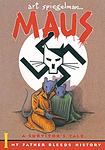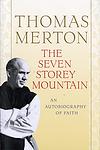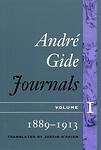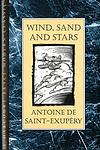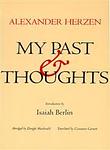The Greatest "France, Autobiography" Books of All Time
Click to learn how this list is calculated.
This list represents a comprehensive and trusted collection of the greatest books. Developed through a specialized algorithm, it brings together 300 'best of' book lists to form a definitive guide to the world's most acclaimed books. For those interested in how these books are chosen, additional details can be found on the rankings page.
Genres
The "France" category of books encompasses literature that is set in or about France, its culture, history, and people. This category includes works of fiction, non-fiction, memoirs, travelogues, and historical accounts that explore the rich and diverse aspects of French society, from its art, cuisine, and fashion to its politics, economy, and social issues. The books in this category offer readers a glimpse into the unique and fascinating world of France, its people, and its way of life.
Autobiography is a literary genre that focuses on the life story of the author. It is a first-person account of the author's experiences, thoughts, and emotions, often including significant events and milestones that have shaped their life. Autobiographies can be written by anyone, from famous public figures to ordinary people, and can cover a wide range of topics, including personal growth, career achievements, struggles, and relationships. This genre provides readers with a unique insight into the author's life and perspective, making it a popular and engaging category of books.
Countries
Date Range
Reading Statistics
Click the button below to see how many of these books you've read!
Download
If you're interested in downloading this list as a CSV file for use in a spreadsheet application, you can easily do so by clicking the button below. Please note that to ensure a manageable file size and faster download, the CSV will include details for only the first 500 books.
Download-
1. The Confessions of Jean-Jacques Rousseau by Jean-Jacques Rousseau
"The Confessions of Jean-Jacques Rousseau" is an autobiographical work by a prominent philosopher of the Enlightenment era, who candidly shares his life story, from his humble beginnings in Geneva to his later years in exile. The book delves into his personal struggles, his intellectual journey, and his relationships, all while exploring his philosophical ideas on education, politics, and morality. The author's introspective narrative provides a unique perspective on his life and times, making it a seminal work in the history of autobiography.
-
2. Maus by Art Spiegelman
This graphic novel tells the story of a Holocaust survivor, as narrated by his son. The unique use of animals to represent different nationalities and ethnic groups adds a distinctive layer to the narrative. The protagonist's father recounts his experiences as a Polish Jew during World War II, offering a poignant depiction of the horrors of the Holocaust. The narrative also explores the complex father-son relationship, revealing the impact of such traumatic historical events on subsequent generations.
-
3. The Autobiography of Alice B. Toklas by Gertrude Stein
This book is an innovative and unconventional autobiography, penned from the perspective of the author's life partner, providing an intimate view into the lives of the Parisian avant-garde in the early 20th century. It offers a personal account of their life together, filled with anecdotes of their interactions with famous figures such as Picasso, Matisse, and Hemingway. The narrative also delves into the author's own thoughts and experiences, creating a unique blend of biography, autobiography, and personal memoir.
-
4. Testament Of Youth by Vera Brittain
Testament of Youth is a poignant memoir detailing the author's experiences during World War I. The narrative follows her journey from her early life, her time as a Voluntary Aid Detachment nurse serving in London, Malta, and France, and her later years as a writer and pacifist. The author's personal loss, including the death of her fiancé and her brother, and the impact of the war on her generation, is a central theme, offering a unique female perspective on the devastating effects of war.
-
5. Moveable Feast by Ernest Hemingway
This memoir offers a glimpse into the life of a young American writer living in Paris during the 1920s. The book is filled with personal anecdotes and observations about his life and experiences, including his relationships with other expatriate writers and artists of the Lost Generation. The focus is on the joy of life, the art of writing, and the struggle of a writer. The book also explores the author's love for the city of Paris, which he refers to as a "moveable feast".
-
6. Good-Bye to All That by Robert Graves
This memoir provides a candid and unflinching look at the horrors of World War I, as experienced by a young British officer. The narrative explores the brutality and futility of war, the author's struggle with shell shock, his disillusionment with the military and British society, and his decision to leave England for a new life abroad. It also offers insights into the author's personal life, including his troubled marriage and his relationships with other prominent figures of the time.
-
7. History of My Life by Giacomo Casanova
"History of My Life" is an autobiography of an Italian adventurer and author, who is best remembered for his often complicated and elaborate affairs with women. The book offers a fascinating insight into his life, travels, and encounters. It provides an intimate look at the social customs and life of the 18th century, as well as the author's personal philosophies on a variety of subjects, including love, luck, and the importance of maintaining a sense of humor.
-
8. Nadja by André Breton
The novel is a surrealistic exploration of the narrator's relationship with a young woman named Nadja. As the narrator becomes infatuated with Nadja, their encounters become more and more dreamlike. The book delves into the nature of reality and the power of the subconscious mind, blurring the lines between dreams and reality. It is also a commentary on the socio-political climate of Paris in the early 20th century, showcasing the author's views on art, life, and love.
-
9. The Autobiography of Benjamin Franklin by Benjamin Franklin
This book is an autobiography of one of America's founding fathers, detailing his life from childhood to adulthood. The author shares his journey from humble beginnings as a printer's apprentice to becoming a successful inventor, writer, businessman, and statesman. The book provides an insight into his thoughts and philosophies on various subjects such as education, self-improvement, and public service, offering a unique look at the early American history through his eyes.
-
10. The Seven Storey Mountain by Thomas Merton
This book is an autobiography of a man who, after a youth filled with worldly experiences and ambitions, converts to Catholicism and chooses to live his life in a Trappist monastery. His journey from a secular life to a deeply spiritual one is filled with introspection and profound insights about the nature of faith and the quest for a meaningful life. His story is a powerful testament to the pull of spiritual enlightenment and the peace that comes from dedicating one's life to a higher purpose.
-
11. Tristes Tropiques by Claude Lévi-Strauss
"Tristes Tropiques" is a blend of autobiography, travel literature, and anthropology by a renowned scholar. The book is a recounting of the author's travels and anthropological work, primarily in Brazil, in the 1930s. It provides a critical and philosophical reflection on his experiences and observations, offering insights into indigenous tribes like the Nambikwara and Tupi-Kawahib, and exploring themes of cultural change, the nature of anthropology, and the author's own disillusionment with Western civilization.
-
12. Words by Jean Paul Sartre
This book is a memoir that explores the author's early life and development as an intellectual. He reflects on his childhood experiences in a non-linear narrative, detailing his relationship with his mother and grandfather, his early education, and his evolving understanding of language and literature. The author also delves into his philosophical ideas, examining the concept of existentialism and the role of the individual in society. The book serves as a profound exploration of the power of words and the impact of childhood experiences on adult life.
-
13. The Periodic Table by Primo Levi
"The Periodic Table" is a collection of short stories that use elements of the periodic table as metaphors to explore the author's experiences as a Jewish-Italian chemist before, during, and after World War II. Each chapter is named after a chemical element, reflecting its significant role in the story. The work provides deep insights into the human condition and the power of science, while also serving as a poignant memoir of survival during the Holocaust.
-
14. Down and Out in Paris and London by George Orwell
This book is a semi-autobiographical work that explores the harsh realities of poverty in two of Europe's most renowned cities. The protagonist, a struggling writer, first experiences the squalor, hardship, and vagabond lifestyle of Paris, where he works menial jobs and often goes hungry. The narrative then shifts to London, where the protagonist lives as a tramp, navigating the oppressive rules of homeless shelters and the stigma of poverty. The book is a deeply empathetic and insightful exploration of the often invisible world of the impoverished.
-
15. Memoirs From Beyond the Grave by François-Auguste-René de Chateaubriand
"Memoirs From Beyond the Grave" is an autobiographical work that chronicles the author's life and experiences in the late 18th and early 19th century. It provides a detailed account of his personal life, his political career, his travels, and his encounters with significant historical figures of the time. The book is also a reflection of the author's thoughts on religion, philosophy, and literature, offering a profound insight into the social and political changes that occurred during the French Revolution and the Napoleonic era.
-
16. Promise at Dawn by Romain Gary
"Promise at Dawn" is a semi-autobiographical novel that explores the life of a young man growing up in Eastern Europe, and later in France, under the shadow of his ambitious and eccentric mother. The protagonist's journey takes him through various phases of his life from his childhood, through his experiences as a pilot in World War II, to his adult life as a diplomat and a writer. The story is a tribute to the protagonist's mother, who instilled in him the values of courage, resilience, and the pursuit of grandeur, even in the face of adversity.
-
17. Me Talk Pretty One Day by David Sedaris
This book is a collection of humorous, autobiographical essays that explore the author's experiences and observations in his life. The first part of the book focuses on his upbringing in North Carolina, his Greek heritage, his relationship with his eccentric family, and his early jobs. The second part of the book details his move to Normandy, France, his struggle to learn the French language, and his observations of French culture. The author's self-deprecating humor and sharp wit provide a satirical view of his life's journey.
-
18. Journals: 1889-1913 by André Gide
"Journals: 1889-1913" is a compilation of personal entries by a prominent French author, written over a span of 24 years. The journals offer a deep insight into the author's thoughts, emotions, and experiences, providing a unique window into his personal life and his creative process. The entries also reflect on the social, political, and cultural events of the time, making the journals not only a personal memoir but also a historical document of late 19th and early 20th century France.
-
19. Wind, Sand and Stars by Antoine de Saint-Exupéry
This book is a memoir by an early twentieth-century French aviator, sharing his experiences as a pioneer of aviation in the 1920s and 1930s, particularly in remote places such as the Sahara Desert and the Andes Mountains. The author reflects on the nature of adventure, the allure of the unknown, and the profound connection between human beings and the natural world. The book is also notable for its philosophical musings on the nature of life and death, solitude and solidarity, and the human condition.
-
20. The Journal of Jules Renard by Jules Renard
"The Journal of Jules Renard" is a collection of the author's personal thoughts, observations, and reflections recorded over a period of almost 30 years. The entries range from the author's insights into human nature, his commentary on social and political issues of his time, his struggles with writing and creativity, and his personal life. The journal is celebrated for its sharp wit, keen observation, and profound insight into the human condition, making it a timeless classic in literature.
-
21. W, or the Memory of Childhood by Georges Perec
"W, or the Memory of Childhood" is a unique blend of autobiographical recollections and fictional narrative. The novel alternates between two storylines: one describing the childhood of a Jewish boy during World War II, and the other detailing a dystopian society on a mysterious island known as "W". The book explores themes of memory, trauma, and the loss of innocence, while also offering a critique of totalitarian regimes. The two narratives gradually converge, revealing the traumatic underpinnings of the protagonist's life and the allegorical nature of "W".
-
22. My Past And Thoughts by Aleksandr Herzen
The book is a rich and vivid memoir by a prominent Russian intellectual and revolutionary who lived through a period of profound social and political upheaval. It combines personal narrative with philosophical reflections, offering a penetrating look at the author's life experiences, from his aristocratic upbringing to his involvement in radical politics. The work delves into the author's ideological development, his relationships with key figures of his time, and his observations on the social issues and political movements that shaped the 19th century. It is a testament to the author's profound engagement with the ideas of freedom, justice, and human agency in the face of an oppressive regime and a changing world.
-
23. The Enormous Room by E. E. Cummings
"The Enormous Room" is a semi-autobiographical novel about the author's time spent in a French prison during World War I. The protagonist is arrested and detained for his anti-war sentiments, and the story explores his experiences and observations within the prison. The novel is known for its unique and experimental use of language and its vivid, often surreal depictions of life in confinement.
-
24. Papillon by Henri Charrière
The book is a memoir that chronicles the harrowing experiences of a Frenchman who is wrongfully convicted of murder and sentenced to life in the penal colonies of French Guiana. Determined to regain his freedom, he makes numerous escape attempts, facing incredible odds and enduring brutal conditions. His indomitable spirit and will to survive lead him through a series of adventures and misadventures, including solitary confinement, a stint in a leper colony, and living with indigenous tribes. Throughout his ordeal, his nickname, derived from the butterfly tattoo on his chest, becomes a symbol of his unyielding quest for liberty.
-
25. The World Of Yesterday by Stefan Zweig
The book is a poignant memoir reflecting on the transformative events and cultural atmosphere of Europe before World War I, through the interwar years and into the rise of the Nazis. It captures the author's experiences of growing up in a vibrant pre-war Vienna, the intellectual richness and artistic achievements of the time, as well as the profound sense of loss as the world he knew disintegrated into chaos and totalitarianism. With a mix of nostalgia and despair, the narrative serves as a lament for the lost world of European culture and as a warning about the fragility of peace and the human cost of war.
Reading Statistics
Click the button below to see how many of these books you've read!
Download
If you're interested in downloading this list as a CSV file for use in a spreadsheet application, you can easily do so by clicking the button below. Please note that to ensure a manageable file size and faster download, the CSV will include details for only the first 500 books.
Download
